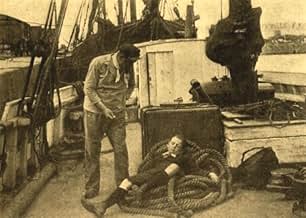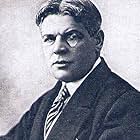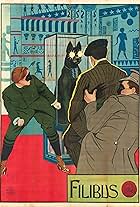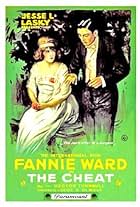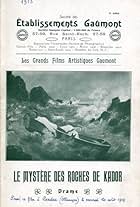Made shortly after his celebrated " L'Enfant De Paris ", although less internationally known, "Le Roman D'Un Mousse " solved the main problem of the aforementioned work : what we can call the sense of "meanwhile ":whereas the second part of "L'Enfant De Paris" was almost entirely given over to Bosco's investigation ,forgetting the desperate father ,"Le Roman D'Un Mousse " set the record straight: the boy's fate intertwined with his mother's : as we get closer to the ending,the sequences concerning the son and the mother become
shorter and shorter,culminating in the superb scene of the trial in which Charles -Henri and his friend Paimpol vindicate the innocent defendant .
Although ,at least to my eyes , "Le Roman D'Un Mousse "is formally ,technically ,superior to the 1913 work,both stories are similar : a child from a good background suddenly plunged in hell :a drunkard's mistreated slut for the girl, ship's boy for Charles-Henri whose captain wants to do away with him at sea;both find a helping hand: hunchback Bosco 's role is played by old sympathetic bearded sailorman Paimpol .
A visionary man,Perret ,long before the overrated Nouvelle Vague which happened almost half a century later ,already took the cinema out of the studio whenever he could :there are shots of Saint-Malo ramparts ,of Le Havre harbor ,and the final scene uses the sunset to startling effects.
Great scenes:
-the hateful marquis ,who lost his fortune in gambling and debauchery,visits pawn broker Werb :they sign a pact;Werb can be compared to the Devil ,and their cynicism knows no bound when they elaborate their ominous plan.
-Werb, hired as a would be private tutor for Charles -Henri ,has his pupil write an essay ,the subject of which is :"imagine you give your tutor the slip and you embark as a young sailor on a ship ":what a cunning alibi !
-Werb ,telling his pupil that smoking cigarettes make you a man and actually drugging him .
-Charles-Henri and his new pal Paimpol on their frail barque ,tossed by the raging sea (it's more convincing than in Perret's earlier effort " Le Mystere Des Roches De Kador",though the barque is not shown upon the waves ).
-The final scene ,filmed on location on a peaceful evening by the sea: Paimpol offers a puff from his pipe ,but the young boy,remembering the cigarettes, decidedly refuses.
A melodrama in four parts, it's very good storytelling ,well played (particularly the actor who plays Werb gives a masterful performance and the child actor rises to the occasion too)



